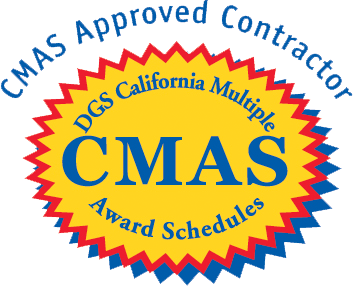As AV integrators in Arcadia, we understand technology’s profound influence on almost every aspect of life, including higher education. So, how technology is reshaping the educational landscape for colleges and universities?
Expanded Access to Education
Unprecedented Information Access: Massive amounts of information, including books, audio, images, and videos, are readily available online. Formal learning opportunities through MOOCs, podcasts, and online degree programs have expanded globally.
Global Reach: Education is now accessible worldwide, breaking geographical barriers and democratizing learning opportunities.
Enhanced Communication and Collaboration
Breaking Classroom Barriers: Tools like video conferencing, instant messaging, and online forums facilitate communication and collaboration beyond physical classrooms.
Global Collaboration: Virtual exchange programs enable students to engage with peers from different countries, fostering cross-cultural understanding and cooperation.
The Evolving Role of Teachers
The traditional passive learning model in lecture halls has become a more interactive and collaborative experience. Educators empower students to actively participate in their learning by encouraging participation and group work. This shift has been made possible by leveraging technology for collaboration and sharing, leading to updates in technology integration and redesigning learning environments to facilitate more interaction and small group activities.
Innovative Teaching and Learning Methods
Adaptive Learning Technologies revolutionize education by customizing educational material to meet individual student’s unique learning requirements through data and advanced algorithms. This approach guarantees a more efficient and stimulating learning journey for each student.
Virtual and Augmented Reality (VR and AR) technologies provide users with immersive learning experiences by simulating realistic environments and overlaying digital information onto the real world. These technologies are particularly effective in making abstract and complex concepts more tangible, which can lead to deeper understanding and retention of information.
Artificial intelligence (AI) in education is crucial in streamlining administrative tasks such as grading, scheduling, and record-keeping in education. Moreover, AI facilitates personalized learning experiences by analyzing students’ strengths and weaknesses, tailoring educational materials and pace to individual needs. Additionally, AI provides valuable data-driven insights that empower educators to adapt and optimize their teaching methods, ultimately improving student learning outcomes.
Arcadia Higher Edu AV Integration Challenges and Considerations
 Digital Divide: The disparity in access to devices and high-speed internet has created significant educational inequalities. Bridging this digital divide is essential for guaranteeing fair and equal access to education, a top priority for policymakers and educators dedicated to cultivating inclusive and accessible learning environments.
Digital Divide: The disparity in access to devices and high-speed internet has created significant educational inequalities. Bridging this digital divide is essential for guaranteeing fair and equal access to education, a top priority for policymakers and educators dedicated to cultivating inclusive and accessible learning environments.
Protecting Student Data: As technology plays a more significant role in education, safeguarding student data, privacy, and security has become a pressing and immediate concern. Establishing and maintaining robust cybersecurity standards is vital to protect sensitive information in educational institutions.
Teacher Training and Professional Development: The rapid evolution of educational technology underscores the need for ongoing professional development. This is essential to ensure educators adapt to new tools and methodologies, a key concern for educators and policymakers striving to deliver high-quality education.
AV Integrators and The Future of Higher Education
Online Education: Higher education institutions increasingly integrate technology into their classrooms, employing Massive Open Online Courses (MOOCs) and flipped classrooms to broaden access and enhance student experience. The rise of online education is reshaping the delivery of residential education, bringing about significant transformation in how education is imparted.
Technology Integrations Needed for MOOCs
For complex tech system integrations, seek out reputable AV integrators in Arcadia, like Vizual Symphony. Our audio-visual integration company says that to successfully implement and deliver Massive Open Online Courses (MOOCs), it is crucial to integrate several key technologies.
Learning Management Systems (LMS):
Platforms such as Moodle, Canvas, or Blackboard are necessary to host and manage course content, monitor progress, and facilitate interaction.
Content Delivery Networks (CDNs):
These networks ensure the smooth and scalable delivery of video lectures and other media content to students.
Interactive Tools:
Live chat, discussion forums, and video conferencing tools, such as Zoom or Microsoft Teams, are needed to enable real-time interaction and collaboration among students and instructors.
Assessment and Evaluation:
Tools for quizzes, exams, and automated grading, such as Quizlet or ProctorU, are essential for evaluating student performance.
Data Analytics:
Tracking student performance and engagement is essential to provide personalized feedback and improve the course content.
Mobile Accessibility:
Ensuring that courses are accessible on mobile devices through responsive design or dedicated apps is crucial for reaching a wider audience.
Integration with Third-Party Resources:
Integrating APIs and plugins allows for the seamless incorporation of external resources and tools, such as Google Drive and GitHub.
By integrating these technologies, a seamless, engaging, and effective learning experience can be created for MOOC participants. Additionally, online education offers affordable tuition costs and flexibility, making higher education accessible to a more significant number of students and accommodating lifelong learning.
Vizual Symphony Understands Education Technology
Technology can transform education by expanding access, enhancing communication, and enabling innovative teaching methods. By embracing educational technology and being mindful of its challenges, we can create a future where education is accessible, personalized, and equipped with the skills necessary for success in an ever-evolving world. This awareness and preparedness are critical to successfully integrating technology into education.
We are the AV integrators Arcadia goes to for technology upgrades. Our service area includes Diamond Bar, Pomona, Whittier, Burbank, Pasadena, Glendale, and nearby communities.
We can help you harness the potential of educational technology to create dynamic learning environments that empower students to thrive. Elevate your classroom experience with Vizual Symphony’s cutting-edge tech solutions and supportive AV managed services. Our team of AV integration experts would love to meet with you to discuss your specific needs and budget.
Whether enriching in-person classes or enabling remote learning, Vizual Symphony has the technology and expertise. Contact us today to discover how our AV solutions can benefit higher education. Schedule your free consultation by calling (626) 229 9112 or visiting us online.




